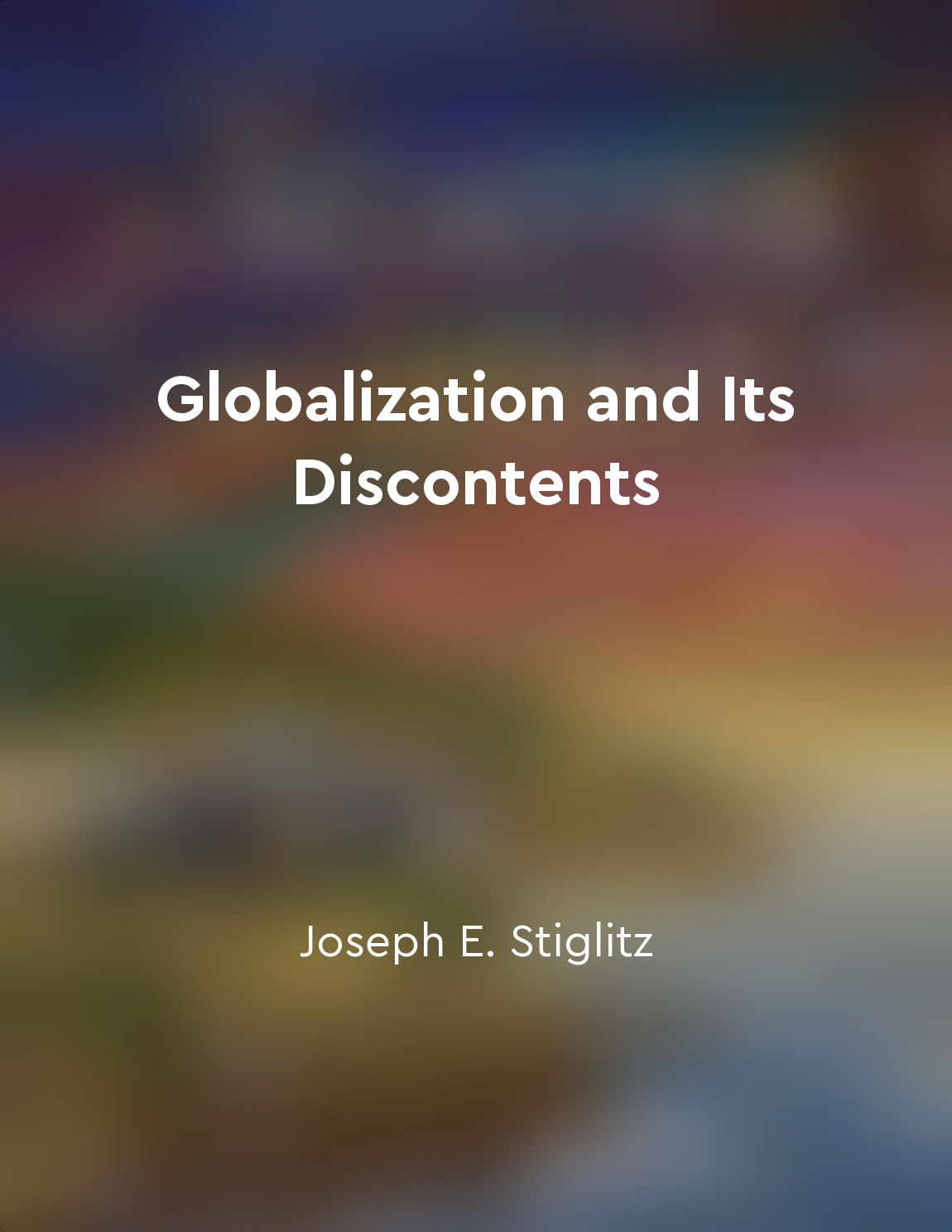Financial motives drive labor decisions from "summary" of Labor in the Age of Finance by Sanford M. Jacoby
Labor decisions are often driven by financial considerations, reflecting the broader influence of finance on employment relationships in the modern economy. Workers must weigh the potential financial gains against the associated costs and risks when making decisions about their labor participation. This calculus is shaped by various factors, including wages, benefits, job security, and opportunities for advancement. Employers, on the other hand, are motivated by financial considerations in their labor decisions as well. They seek to maximize profits, minimize costs, and optimize efficiency in order to remain competitive in the market. This often leads them to prioritize financial outcomes over other considerations, such as worker well-being or job satisfaction. As a result, labor decisions are often driven by the imperative to generate returns for shareholders and stakeholders. Financial motives also play a significant role in shaping the structure of labor markets and employment relationships. Companies may outsource work to lower-cost regions or automate jobs in order to reduce expenses and increase profits. This can have far-reaching implications for workers, as they may face job displacement, wage stagnation, or increased precarity as a result of these decisions. Moreover, financial incentives can influence individual behavior within organizations. Workers may be incentivized to work longer hours, take on additional responsibilities, or forgo breaks in order to meet performance targets or earn bonuses. This can have implications for their health and well-being, as well as their overall job satisfaction and engagement.- The influence of financial motives on labor decisions underscores the complex interplay between economic forces, organizational dynamics, and individual choices in the contemporary labor market. As such, understanding these dynamics is essential for policymakers, researchers, and practitioners seeking to address the challenges and opportunities facing workers and employers in the age of finance.
Similar Posts
Market fundamentalism leads to crisis
Market fundamentalism, the belief that free markets should be the organizing principle of society, inevitably leads to crisis. ...
Job titles are meaningless
In the business world, job titles are often used as a way to define a person's role within an organization. However, the realit...

The financial sector has become too dominant in the global economy
The dominance of the financial sector in the global economy has reached unprecedented levels, exerting immense influence over g...
A better world is within reach
The promise of a better world lies just beyond our reach, tantalizingly close yet somehow always out of grasp. It is a vision t...
Encourage innovation and risktaking
Encouraging innovation and risk-taking is crucial for fostering a culture of creativity and growth within an organization. By p...

Cultural exchange
Cultural exchange is an essential aspect of globalization, as it involves the sharing of ideas, beliefs, values, and practices ...

The Reconstruction era failed to address racial injustice
The period known as Reconstruction, following the Civil War, was a time of great hope and potential for change in the United St...
Entrepreneurship fosters innovation and growth
Entrepreneurship is a vital force in driving economic growth, as it is through the entrepreneurial endeavors of individuals tha...

Prosperity was a defining characteristic of postwar America
In the years following the Second World War, the United States experienced a period of unparalleled economic growth and materia...
Differentiation is essential for organizations
Differentiation is a critical concept for organizations to understand and implement in order to achieve success in today's dyna...

